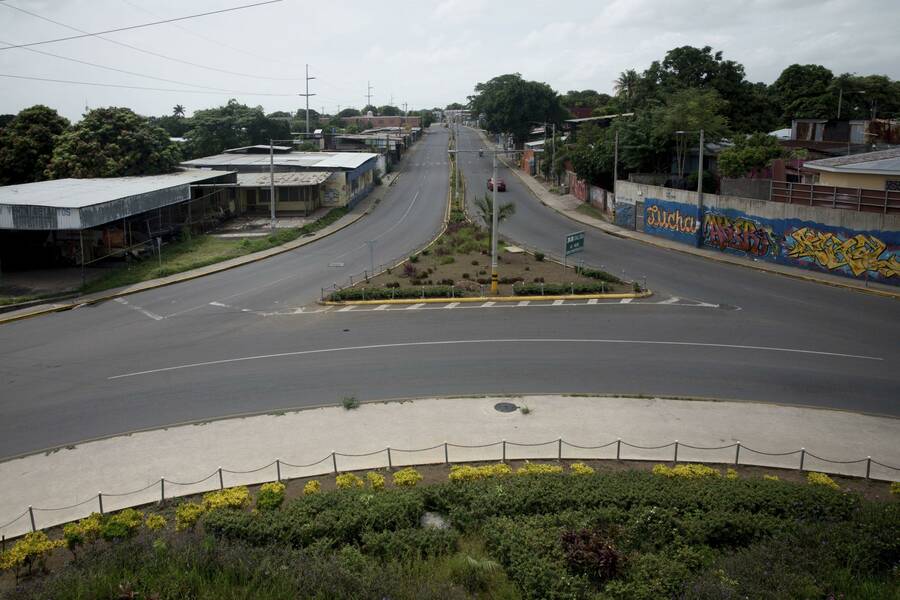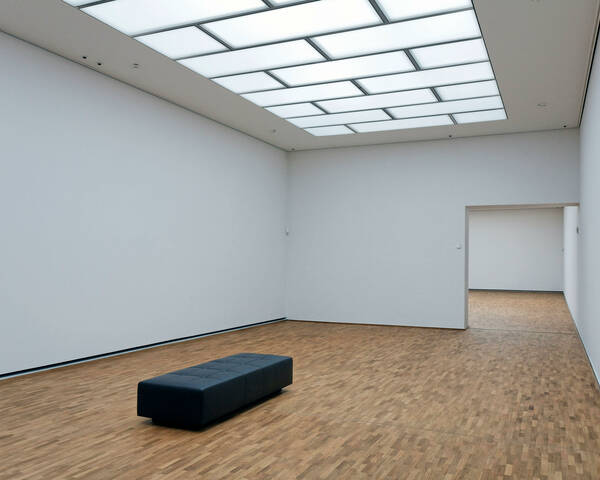Strike

(English follows the Spanish, below.)
Refusal, abolitionists remind us, is a door to another world. Denying violent structures the nourishment of your labor offers an opportunity to reorient toward another way. In this sense, a strike is a profoundly creative act. Gioconda Belli’s “Huelga” (“Strike”), translated by Mark Eisner, performs these twin projects of refusal of what is and preparation for what else might be. A former member of the Sandinista National Liberation Front and, more recently, a member of the Sandinista renewal movement, as well as a prolific writer, Belli has long been part of a creative political project.
As “Huelga” seeks a total strike that includes both animate beings and inanimate objects, I am moved not only by the formal reconstitution as the language falls into columns—enacting on the page the strike’s reorganizational dimensions—but also by the wide noticing of the strike’s participatory roll call. “I want a strike . . . born from every body. // I want a strike / of workers of doves of drivers of flowers,” Belli writes, and I am made mindful of how many beautiful things comprise a world in which the tyrant persists, which is to say: how much might be turned toward the call for a new world. When we reach the poem’s end—“a strike where silence is born / so you can hear the footsteps / of the tyrant as he walks away”—it is that recurrent word, “born,” that lingers in my ear. If the strike “born from every body” is also the strike where “silence is born,” then this is not the silence of absence, but rather the interrogative silence of a radically connective presence. When the footsteps of the tyrant fade and that silence is completed, how will we be with each other?
– Claire Schwartz
Huelga
Quiero una huelga donde vayamos todos.
Una huelga de brazos, de piernas, de cabellos,
Una huelga naciendo en cada cuerpo.
Quiero una huelga
de obreros de palomas
de choferes de flores
de técnicos de niños
de médicos de mujeres.
Quiero una huelga grande,
que hasta al amor alcance.
Una huelga donde todo se detenga,
el reloj las fábricas
el plantel los colegios
el bus los hospitales
la carretera los puertos.
Una huelga de ojos, de manos y de besos.
Una huelga donde respirar no sea permitido,
una huelga donde nazca el silencio
para oír los pasos
del tirano que se marcha.
Strike
I want a strike where we all walk out.
A strike of arms, of legs, of hair,
A strike born from every body.
I want a strike
of workers of doves
of drivers of flowers
of technicians of children
of doctors of women
I want a giant strike,
that extends even to love.
A strike that brings everything to a halt,
the clock the factories
the yard the schools
the bus the hospitals
the highway the ports
A strike of eyes, of hands, and of kisses.
A strike where it is forbidden to breathe,
a strike where silence is born
so you can hear the footsteps
of the tyrant as he walks away.
“Huelga” © Gioconda Belli c/o Schavelzon Graham Agencia Literaria
“Strike” translation © 2020 by Mark Eisner. From Resistencia: Poems of Protest and Revolution, published by Tin House.
Gioconda Belli (b. 1948) is a Nicaraguan writer and political activist. The author of eight poetry books and eight novels, a memoir, a book of essays, and four children books, Belli is the president of PEN International, Nicaragua, and a member of the Spanish Royal Academy of Letters and Chevalier des Arts et des Lettres of France.
Mark Eisner is a co-editor of Resistencia: Poems of Protest and Revolution. He previously spent nearly two decades working on projects related to Pablo Neruda. The last of them, Neruda: The Biography of a Poet, was a Finalist for the 2019 PEN Prize for Biography.
